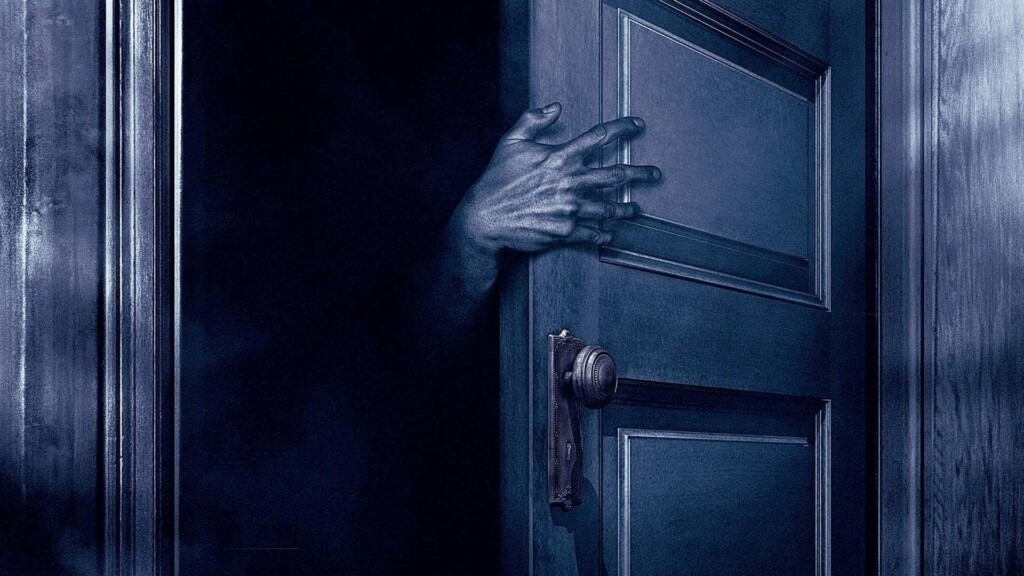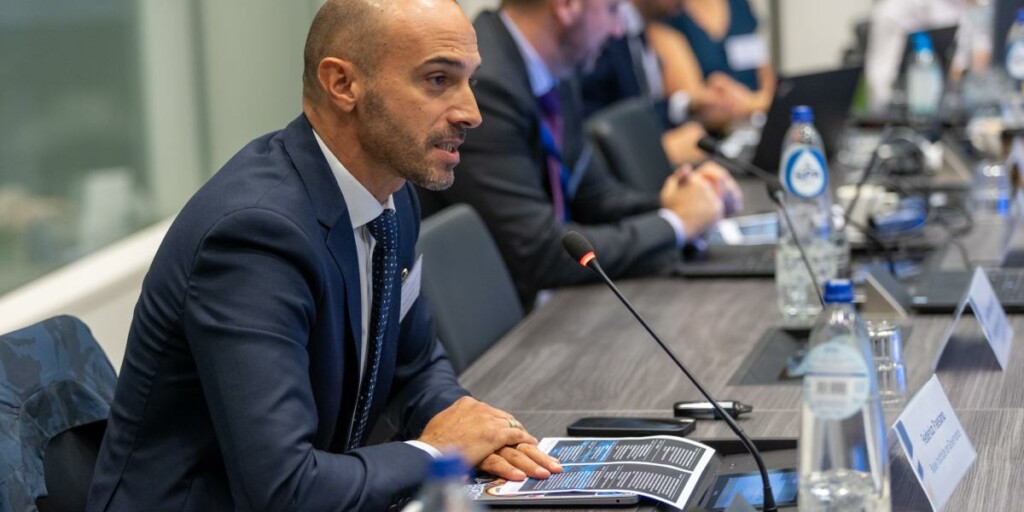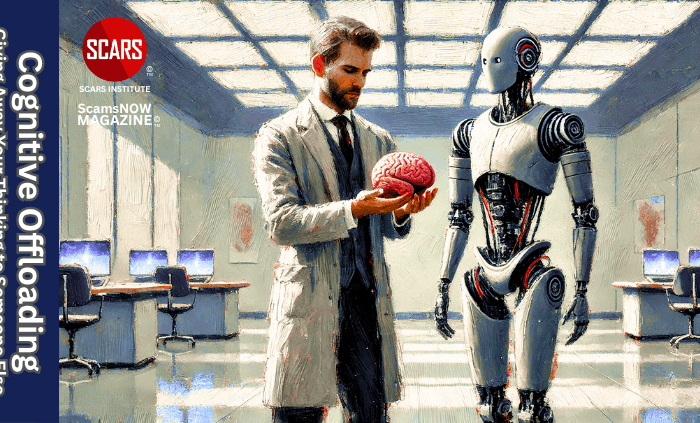Repeat Nigerian Scammer Adedayo Ilori Gets 25 Years In U.S. Prison
By SCARS Editorial Team – Society of Citizens Against Relationship Scams Inc., Portions U.S. Department of Justice
Repeat Nigerian Scammer Goes To Prison
Damian Williams, the United States Attorney for the Southern District of New York, announced that ADEDAYO Adedayo Ilori was sentenced today by U.S. District Judge Mary Kay Vyskocil to 25 years in prison for his participation in a sophisticated identity theft and COVID-19 loan fraud scheme.
U.S. Attorney Damian Williams said: “Even while on bail for federal fraud offenses, Adedayo Ilori could not help but continue his repeated fraud and identity theft crimes. He saw the hardships and disruption of the COVID-19 pandemic and the federal government’s efforts to address those in need as an opportunity for fraud. He lined his own pockets and recklessly used the identities of dozens of victims. Today’s sentence sends a message to Ilori and others engaged in similar crimes that such conduct, especially when it is repeated, will be severely punished.”

According to court filings and evidence introduced during court proceedings against Adedayo Ilori:
The Coronavirus Aid, Relief, and Economic Security (“CARES”) Act is a federal law enacted on March 29, 2020, designed to provide emergency financial assistance to the millions of Americans who suffered the economic effects caused by the COVID-19 pandemic. One source of relief provided by the CARES Act was the authorization of hundreds of billions of dollars in forgivable loans to small businesses for job retention and certain other expenses through the U.S. Small Business Administration’s Paycheck Protection Program (“PPP”). Pursuant to the CARES Act, the amount of PPP funds a business was eligible to receive was determined by the number of employees employed by the business and their average payroll costs. Businesses applying for a PPP loan were required to provide documentation to confirm that they had previously paid employees the compensation represented in the loan application. The CARES Act also expanded the separate Economic Injury Disaster Loan (“EIDL”) Program, which provided small businesses with low-interest loans of up to $2 million to help overcome the temporary loss of revenue they experienced due to COVID-19. To qualify for an EIDL loan under the CARES Act, the applicant must have suffered “substantial economic injury” from COVID-19.
From at least in or about August 2020 through at least in or about October 2021, Adedayo Ilori and his co-defendant, Chris Recamier, engaged in a rampant COVID-19 loan fraud scheme. Utilizing false identities, sham tax records, and corporate documents, Adedayo Ilori and Recamier successfully obtained more than $1 million, and attempted to obtain more than $10 million, through the PPP and the EIDL Program. In particular, Adedayo Ilori and Recamier applied for 14 PPP and EIDL loans. In applying for these loans, Adedayo Ilori and Recamier claimed stolen identities of third parties and claimed full control of a number of companies, which they purported, cumulatively, employed more than 200 people and paid monthly salaries of more than $3.2 million in wages. In reality, they did not operate these companies. In submitting these applications, Adedayo Ilori and Recamier, among other things, submitted falsified tax documents which were never actually filed with the Internal Revenue Service.
Adedayo Ilori and Recamier used the majority of the over $1 million in stolen government funds for cryptocurrency investments, the purchase of stocks, cash withdrawals, and personal expenses, including leasing luxury apartments and a Mercedes car. The investment accounts were also opened by Adedayo Ilori and Recamier in the stolen identities of third parties.
Adedayo Ilori committed these offenses while facing charges in a separate case filed in the Southern District of New York involving fraud, identity theft, and money laundering in United States v. Ilori, 20 Cr 378 (LJL). As part of that case, Adedayo Ilori was sentenced on March 3, 2022, to 63 months in prison by U.S. District Judge Lewis J. Liman in connection with a commercial loan fraud and bank bribery scheme.
* * *
In addition to the prison term, which is to run consecutive to Adedayo Ilori’s term of 63 months in prison that was imposed by Judge Liman, Adedayo Ilori, 43, of Queens, New York, was sentenced to five years of supervised release and ordered to forfeit $1,039,424 and pay restitution in the amount of $1,120,462.40.
Adedayo Ilori’s co-defendant, Chris Recamier, 59, of New York, New York, previously pled guilty to major fraud against the United States and was sentenced on October 17, 2022, by Judge Vyskocil to nine years in prison.
Mr. Williams praised the outstanding investigative work of the U.S. Department of Justice, Office of the Inspector General, which conducted the investigation on behalf of the Pandemic Response Accountability Committee (“PRAC”) COVID-19 Task Force.[1] Mr. Williams also thanked the U.S. Secret Service, the Drug Enforcement Administration, the New York City Police Department, the Federal Bureau of Investigation, and the Federal Aviation Administration for their assistance in this investigation.
This case is being handled by the Office’s Complex Frauds and Cybercrime Unit. Assistant U.S. Attorneys Juliana N. Murray, David R. Felton, and Daniel G. Nessim are in charge of the prosecution.
More:
- Southern District of New York | Recidivist Fraudster Convicted At Trial Of Over $10 Million COVID-19 Loan Fraud Scheme | United States Department of Justice 2022
- Scammers Are The New Boogeymen! 2023 (scamsnow.com)
- Scams and Cryptocurrency Go Hand in Hand (scamsnow.com)
- Fraudsters Steal $135 Billion In Fake COVID19 Jobless & Unemployment Claims (scamsnow.com)
- Why Scammers Don’t Give Up (scamsnow.com)
SCARS Resources:
- For New Victims of Relationship Scams newvictim.AgainstScams.org
- Subscribe to SCARS Newsletter newsletter.againstscams.org
- Sign up for SCARS professional support & recovery groups, visit support.AgainstScams.org
- Find competent trauma counselors or therapists, visit counseling.AgainstScams.org
- Become a SCARS Member and get free counseling benefits, visit membership.AgainstScams.org
- Report each and every crime, learn how to at reporting.AgainstScams.org
- Learn more about Scams & Scammers at RomanceScamsNOW.com and ScamsNOW.com
- Global Cyber Alliance ACT Cybersecurity Tool Website: Actionable Cybersecurity Tools (ACT) (globalcyberalliance.org)
- Self-Help Books for Scam Victims are at shop.AgainstScams.org
- Donate to SCARS and help us help others at donate.AgainstScams.org
- Worldwide Crisis Hotlines: International Suicide Hotlines – OpenCounseling : OpenCounseling
- Campaign To End Scam Victim Blaming – 2024 (scamsnow.com)
-/ 30 /-
What do you think about this?
Please share your thoughts in a comment below!
More ScamsNOW.com Articles
-/ 30 /-
What do you think about this?
Please share your thoughts in a comment above!
SCARS LINKS: AgainstScams.org RomanceScamsNOW.com ContraEstafas.org ScammerPhotos.com Anyscam.com ScamsNOW.com
reporting.AgainstScams.org support.AgainstScams.org membership.AgainstScams.org donate.AgainstScams.org shop.AgainstScams.org
youtube.AgainstScams.org linkedin.AgainstScams.org facebook.AgainstScams.org
ARTICLE RATING
TABLE OF CONTENTS
CATEGORIES
MOST POPULAR COMMENTED ARTICLES
POPULAR ARTICLES
U.S. & Canada Suicide Lifeline 988
![NavyLogo@4x-81[1]](https://scamsnow.com/wp-content/uploads/2025/04/NavyLogo@4x-811.png)
ARTICLE META
WHAT PEOPLE ARE TALKING ABOUT LATEST SITE COMMENTS
See Comments for this Article at the Bottom of the Page
on Substance Abuse Susceptibility And Scam Victims – 2024: “It is understandable how some would feel that alcohol or substance abuse would be helpful in handling their feelings after…” Jul 1, 20:36
on Scam Victims Use Work To Avoid Healing: “The last 6 years have been the most difficult of my life. The pandemic, having both parents in the hospital…” Jun 29, 18:38
on Entitlement Mentality And How Scam Victims Often Lose Their Path To Recovery – 2024: “Thank you for this discussion of entitlement. I can see from the descriptions listed that I have not felt entitlement.…” Jun 29, 18:22
on Samurai Wisdom and Rituals for Clearing the Mind After Scam Trauma – 2025 – [VIDEOS]: “A great guide on how to move forward in our recovery process with a calm mind, cleansed on an ongoing…” Jun 28, 07:34
on Delayed Gratification and Patience in Scam Victim Recovery – 2025 – [VIDEOS]: “We want to recover quickly and… we make new mistakes. How not to speed up the recovery process, how to…” Jun 28, 06:41
on The Unique Injury Of Betrayal Trauma On Scam Victims – 2024: “Primarily because you did not see it coming” Jun 27, 23:57
on Changes In A Scam Victim’s Life: “I really detest the way my trust in others has been affected by the scamming I went through. I used…” Jun 27, 14:47
on The Unique Injury Of Betrayal Trauma On Scam Victims – 2024: “Betrayal Trauma is the worst feeling ever. Why does it seem so much worse when a scammer does that to…” Jun 27, 14:34
on EMDR Therapy For Scam Victims’ Trauma – A Part Of The Recovery Process For Many – 2024: “Very comprehensive article explaining all aspects of EMDR. I’d only heard of it before and now I have a much…” Jun 26, 19:01
on Forgiving Yourself After Surviving a Romance or Investment Scam – 2025: “Thank you for this valuable article. Self-forgiveness was for me the biggest step that led to my recovery. That also…” Jun 26, 17:28
on Counseling And Your Native Language: “These points make perfect sense. I can’t imagine trying to express complex emotions in a second language. I realize many…” Jun 26, 16:05
on Thought-Terminating Cliches – How What You and Others Say Stops Critical Thinking and Recovery for Scam Victims – 2025: “I didn’t realize that these “innocent phrases” clichés ending thoughts, can have such effect / negative -inhibiting / on our…” Jun 26, 14:48
on Scam Victim Resistance In Support Groups Therapy Or Counseling Can Destroy Opportunities For Recovery – 2024: “Working with either a support group or therapist to me means a self commitment to actively participating in the therapy.…” Jun 24, 21:01
on ‘I Just Want To Forget It’ – Denial & Avoidance Are Natural But Will Not Help Scam Victims On Their Path To Recovery From Scams – 2024: “My financial loss, the shock and betrayal of the crime ending all combined to fray my nerves and spend hours…” Jun 24, 20:10
on You Hate Being Told What To Do? How Your Rebellious Mentality Can Sabotage Your Recovery – 2025: “I am a bit of a rebel, and the moment someone tells me to do something, worse, does it even…” Jun 24, 15:04
on You Hate Being Told What To Do? How Your Rebellious Mentality Can Sabotage Your Recovery – 2025: “You are very welcome” Jun 24, 03:01
on You Hate Being Told What To Do? How Your Rebellious Mentality Can Sabotage Your Recovery – 2025: “This is a great article, which makes perfect sense as to why anyone would resist the help offered to them.…” Jun 23, 20:01
on Scam Victims’ Responsibilities – 2021 [Updated 2025]: “Thank you for this article. As I continue my journey, I focus on the here and now and let the…” Jun 21, 16:26
on Scam Victims Avoid Or Escape The Aftermath Of Scams – How Denial And Distraction Avoid Confronting Reality – 2024: “In the earliest days after my crime I felt powerless, helpless and weak. I had been through so much in…” Jun 21, 14:46
Important Information for New Scam Victims
Please visit www.ScamVictimsSupport.org – a SCARS Website for New Scam Victims & Sextortion Victims
SCARS Institute now offers a free recovery program at www.SCARSeducation.org
Please visit www.ScamPsychology.org – to more fully understand the psychological concepts involved in scams and scam victim recovery
If you are looking for local trauma counselors, please visit counseling.AgainstScams.org
If you need to speak with someone now, you can dial 988 or find phone numbers for crisis hotlines all around the world here: www.opencounseling.com/suicide-hotlines
Statement About Victim Blaming
Some of our articles discuss various aspects of victims. This is both about better understanding victims (the science of victimology) and their behaviors and psychology. This helps us to educate victims/survivors about why these crimes happened and not to blame themselves, better develop recovery programs, and help victims avoid scams in the future. At times, this may sound like blaming the victim, but it does not blame scam victims; we are simply explaining the hows and whys of the experience victims have.
These articles, about the Psychology of Scams or Victim Psychology – meaning that all humans have psychological or cognitive characteristics in common that can either be exploited or work against us – help us all to understand the unique challenges victims face before, during, and after scams, fraud, or cybercrimes. These sometimes talk about some of the vulnerabilities the scammers exploit. Victims rarely have control of them or are even aware of them, until something like a scam happens, and then they can learn how their mind works and how to overcome these mechanisms.
Articles like these help victims and others understand these processes and how to help prevent them from being exploited again or to help them recover more easily by understanding their post-scam behaviors. Learn more about the Psychology of Scams at www.ScamPsychology.org
SCARS INSTITUTE RESOURCES:
If You Have Been Victimized By A Scam Or Cybercrime
♦ If you are a victim of scams, go to www.ScamVictimsSupport.org for real knowledge and help
♦ Enroll in SCARS Scam Survivor’s School now at www.SCARSeducation.org
♦ To report criminals, visit https://reporting.AgainstScams.org – we will NEVER give your data to money recovery companies like some do!
♦ Follow us and find our podcasts, webinars, and helpful videos on YouTube: https://www.youtube.com/@RomancescamsNowcom
♦ Learn about the Psychology of Scams at www.ScamPsychology.org
♦ Dig deeper into the reality of scams, fraud, and cybercrime at www.ScamsNOW.com and www.RomanceScamsNOW.com
♦ Scam Survivor’s Stories: www.ScamSurvivorStories.org
♦ For Scam Victim Advocates visit www.ScamVictimsAdvocates.org
♦ See more scammer photos on www.ScammerPhotos.com
You can also find the SCARS Institute on Facebook, Instagram, X, LinkedIn, and TruthSocial
Psychology Disclaimer:
All articles about psychology and the human brain on this website are for information & education only
The information provided in this and other SCARS articles are intended for educational and self-help purposes only and should not be construed as a substitute for professional therapy or counseling.
Note about Mindfulness: Mindfulness practices have the potential to create psychological distress for some individuals. Please consult a mental health professional or experienced meditation instructor for guidance should you encounter difficulties.
While any self-help techniques outlined herein may be beneficial for scam victims seeking to recover from their experience and move towards recovery, it is important to consult with a qualified mental health professional before initiating any course of action. Each individual’s experience and needs are unique, and what works for one person may not be suitable for another.
Additionally, any approach may not be appropriate for individuals with certain pre-existing mental health conditions or trauma histories. It is advisable to seek guidance from a licensed therapist or counselor who can provide personalized support, guidance, and treatment tailored to your specific needs.
If you are experiencing significant distress or emotional difficulties related to a scam or other traumatic event, please consult your doctor or mental health provider for appropriate care and support.
Also read our SCARS Institute Statement about Professional Care for Scam Victims – click here
If you are in crisis, feeling desperate, or in despair, please call 988 or your local crisis hotline.
More ScamsNOW.com Articles
A Question of Trust
At the SCARS Institute, we invite you to do your own research on the topics we speak about and publish. Our team investigates the subject being discussed, especially when it comes to understanding the scam victims-survivors’ experience. You can do Google searches, but in many cases, you will have to wade through scientific papers and studies. However, remember that biases and perspectives matter and influence the outcome. Regardless, we encourage you to explore these topics as thoroughly as you can for your own awareness.














![scars-institute[1]](https://scamsnow.com/wp-content/uploads/2025/04/scars-institute1.png)
![niprc1.png1_-150×1501-1[1]](https://scamsnow.com/wp-content/uploads/2025/04/niprc1.png1_-150x1501-11.webp)
